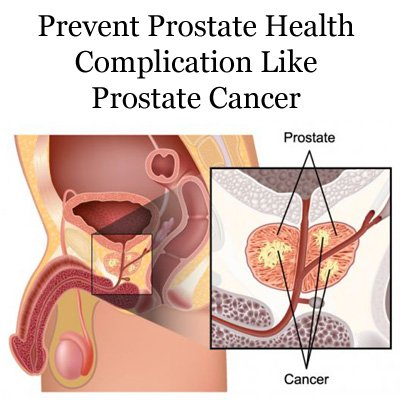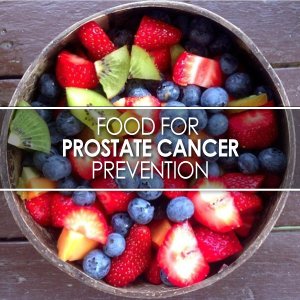Prostate cancer remains a significant health concern globally, particularly in the United States. The mere mention of “cancer” can evoke fear and anxiety. However, understanding the disease and learning about the natural ways to prevent and manage it can empower individuals and alleviate some of these concerns. This article aims to provide updated insights into prostate cancer and highlight natural strategies for maintaining prostate health.
Understanding Prostate Cancer

Prostate cancer is a type of cancer that develops in the prostate, a small gland that produces seminal fluid in men. It typically grows slowly and remains confined to the prostate gland in its early stages. Common symptoms include difficulty urinating, reduced urine flow, pelvic discomfort, bone pain, and erectile dysfunction. These symptoms can significantly impact prostate health and overall well-being.
Prostate Cancer Statistics in the USA
Prostate cancer is one of the most common types of cancer among men in the United States, second only to non-melanoma skin cancer. In 2020, 201,082 new prostate cancers were reported, and 32,707 males died from the disease. The risk of prostate cancer increases with age, particularly in men over 65 years old, and is higher among African American men.
Causes of Prostate Cancer
Prostate cancer, a common type of cancer in men, is influenced by several factors:
- Obesity: Obesity is a significant risk factor for prostate cancer. It often results from unhealthy food choices and lack of physical activity. Overeating, especially foods high in fat and sugar, combined with a sedentary lifestyle, can lead to obesity. This excess weight can increase the risk of developing prostate cancer. Maintaining a healthy weight through a balanced diet and regular exercise can help reduce this risk.
- Family History: Genetic predisposition plays a crucial role in the risk of prostate cancer. Individuals with a family history of prostate cancer, especially if a father or brother had the disease, are at a higher risk. This increased risk may be due to inherited genes, shared lifestyle factors, or a combination of both. Genetic testing can help identify those at a higher risk due to their family history.
- Age: The risk of prostate cancer increases significantly with age. Most cases are diagnosed in men over 65. Unhealthy lifestyle choices, such as excessive consumption of dairy products, yogurt, and cheese, can contribute to this risk. It’s important to note that while you can’t control your age, you can control your lifestyle choices. Eating a balanced diet and limiting the intake of dairy can help manage this risk.
- Race: Certain racial groups have a higher risk of developing prostate cancer. For example, African American men have the highest risk of prostate cancer among all racial groups. The reasons for these racial disparities in prostate cancer incidence are complex and may involve a combination of genetic, environmental, and lifestyle factors.
Understanding these risk factors can help in early detection and prevention of prostate cancer. Regular screenings, especially for those at a higher risk, can lead to early detection when the disease is most treatable.
Natural Remedies for Prostate Health
Recent research suggests that a primarily plant-based diet can significantly reduce the risk of prostate cancer progression. Here are some foods that can contribute to prostate health:

- Tomatoes: Rich in lycopene, a powerful antioxidant, tomatoes can help prevent prostate cancer.
- Broccoli: Broccoli and other cruciferous vegetables like kale, cabbage, Brussels sprouts, and cauliflower are rich in phytochemicals and vitamins that promote prostate health.
- Green Tea: Green tea is a rich source of antioxidants, particularly catechins, which protect cells from damage.
- Pumpkin Seeds: Pumpkin seeds are a great source of zinc, a nutrient essential for prostate health.
- Carrots: Carrots are rich in beta-carotene, which can reduce the risk of prostate cancer.
- Soy-rich Foods: Foods like soybeans, soy flour, tofu, soy sauce, tempeh, soy nuts, and soy milk are rich in isoflavones, which are effective in cancer treatment.
- Apple: Apples are rich in vitamin C, fiber, and quercetin, a type of flavonoid that fights inflammation and oxidation.
- Berries: Berries like blackberries, blueberries, and raspberries are rich in phytochemicals and powerful antioxidants.
- Avocados: Avocados contain carotenoid lutein, which is effective in treating prostate cancer.
- Citrus Fruits: Citrus fruits are rich in flavonoids and vitamin C, which are effective in treating cancer.
- Grapes: Grapes are rich in phytochemicals and polyphenols, which protect against inflammation.
- Grapefruit: Grapefruit is rich in plant-based chemicals, beta carotene, and lycopene, and is also high in Vitamin C.
- Mushrooms: Mushrooms are rich in beta-glucan and lectin, which fight against cell damage in the prostate area.
- Whole Grains: Whole grains like brown rice, corn, white bread, and oatmeal provide enough fiber, magnesium, and plant-based protein.
Guidelines for a Cancer-Free Life
Maintaining a healthy lifestyle is not just beneficial for overall well-being, but it is also crucial in preventing diseases such as prostate cancer. Here are some guidelines to help you lead a cancer-free life:
- Maintain a Healthy Weight: Obesity is a significant risk factor for various types of cancer, including prostate cancer. A healthy weight is not just about appearance, it’s about living well and feeling good about yourself. It’s about maintaining a body weight that decreases your risk of chronic diseases and increases your chances of living a long, healthy life. Therefore, it is crucial to maintain a healthy weight through a balanced diet and regular exercise. Regular check-ups can help monitor your weight and take necessary actions if required.
- Adopt a Healthy Diet: The food we consume plays a vital role in our health. Consuming a diet rich in fruits, vegetables, and whole grains can significantly reduce the risk of prostate cancer. These foods are high in fiber and antioxidants, which help protect against cancer. Try to incorporate a variety of these foods into your daily meals. Avoid processed foods and opt for fresh, organic produce whenever possible.
- Engage in Regular Physical Activity: Regular physical activity is essential for maintaining a healthy weight and promoting overall health. It helps to regulate your weight by burning excess calories that otherwise would be stored as fat. Physical activity also helps to prevent and manage health problems like heart disease, high blood pressure, and type 2 diabetes. Moreover, it improves mood, promotes better sleep, and provides an enjoyable way to engage in social activities.
Remember, these guidelines are not just about preventing prostate cancer, but they are about leading a healthy, fulfilling life. It’s never too late to start making healthier choices. Every step taken towards a healthier lifestyle is a step towards a cancer-free life. Prostate cancer can be a daunting diagnosis. However, adopting a healthy lifestyle and diet can significantly reduce the risk of developing this disease. Always consult with a healthcare provider before making significant changes to your diet or lifestyle. Remember, prevention is always better than cure. Stay healthy, stay proactive!
Cancer-related other topic
